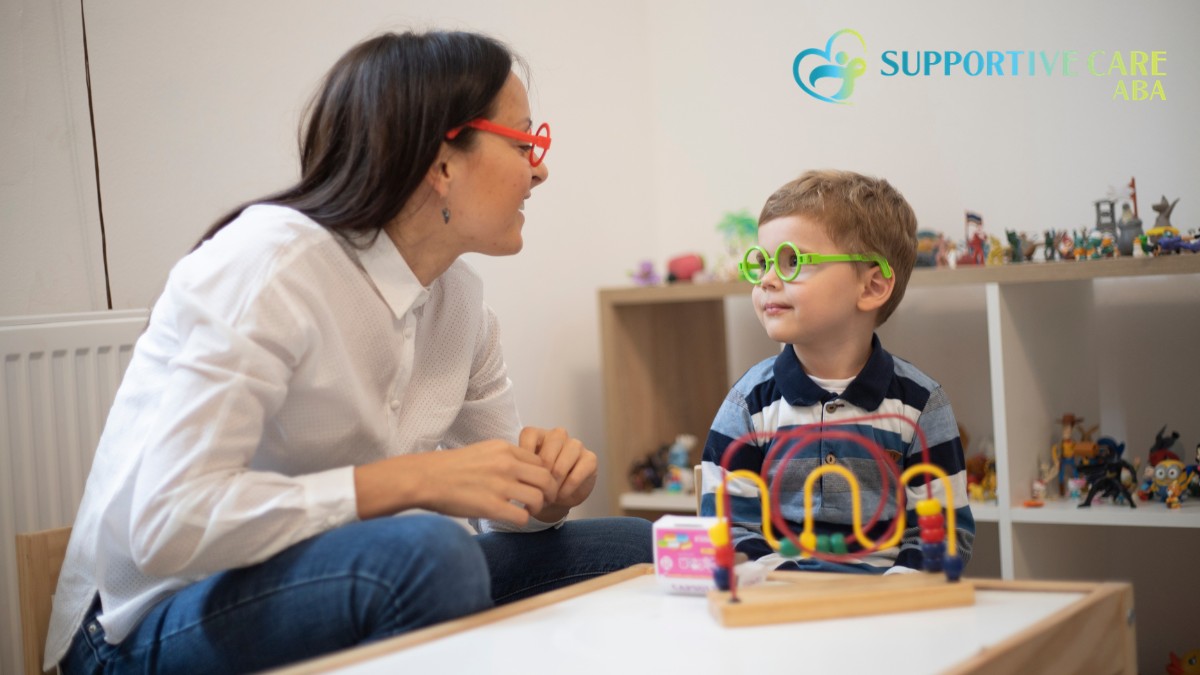ABA Therapy in Indiana: How Early Should You Begin?
ABA Therapy in Indiana can boost your child’s development—learn how early you should begin and why starting sooner supports better progress and outcomes.

ABA Therapy in Indiana: How Early Should You Begin?
Key Points:
- Early intervention with ABA therapy in Indiana can significantly impact a child’s social, communication, and behavioral development.
- Recognizing early signs of autism and starting therapy promptly allows for more personalized and effective treatment plans.
- Parents can work with certified BCBAs to implement strategies that build skills while fostering independence and confidence.
Understanding when to begin ABA therapy is one of the most important decisions a parent can make for a child diagnosed with autism. In Indiana, access to specialized care like ABA therapy in Indiana has become more available, but questions about timing, effectiveness, and approaches remain common. Early intervention is not just a recommendation—it’s a strategy backed by research showing that starting therapy sooner can create lasting developmental gains.
Supportive Care ABA, for instance, works with families to create customized treatment plans, helping children build communication skills, manage challenging behaviors, and strengthen social interaction. Knowing when and how to begin can make a tangible difference in a child’s daily life.
Why Early ABA Therapy Matters
ABA, or Applied Behavior Analysis, focuses on understanding behavior and teaching new skills through positive reinforcement. But why is starting early so critical? Early childhood is a period of rapid brain development. Intervening during these formative years allows children to:
- Build foundational social skills before challenging behaviors become ingrained.
- Improve language and communication at a time when learning is most efficient.
- Reduce the intensity and frequency of disruptive behaviors through structured support.
Research consistently demonstrates that children who start ABA therapy early often show more significant improvements in communication, cognitive function, and adaptive behaviors than those who begin later. Early intervention can create a smoother path toward independence and self-confidence.
5 Signs Your Child May Benefit from ABA Therapy
Before starting therapy, it’s helpful to recognize common developmental indicators that ABA therapy can address. Here are several signs that may suggest your child could benefit from early intervention:
- Delayed Speech or Language Skills: Children may not speak as much as peers, struggle to form sentences, or have trouble understanding instructions. ABA therapy targets these delays through structured exercises that encourage communication.
- Limited Social Interaction: Difficulty engaging with peers, avoiding eye contact, or not responding to social cues can be addressed through targeted social skills training.
- Repetitive Behaviors: Hand-flapping, spinning objects, or rigid routines can interfere with learning. ABA therapy introduces gradual behavior modification strategies that reduce reliance on repetitive behaviors.
- Difficulty with Transitions: Children who struggle with changes in routines or environments often benefit from ABA techniques that teach flexibility and coping skills.
- Sensory Sensitivities: Over- or under-reacting to sensory input such as sounds, lights, or textures can impact daily life. ABA therapy can provide desensitization strategies and coping mechanisms.
Recognizing these behaviors early allows parents and therapists to begin intervention at a time when the child’s brain is most receptive to change, increasing the likelihood of positive outcomes.
How Early is Early? Ideal Age for ABA Therapy
Many experts recommend starting ABA therapy as soon as an autism diagnosis is confirmed, often between ages 2 and 4. Some children may benefit from therapy even earlier if delays or behaviors are identified.
Early intervention allows therapists to:
- Tailor therapy sessions to a child’s unique strengths and challenges.
- Incorporate play-based learning that naturally encourages skill-building.
- Monitor progress closely, adjusting techniques as the child develops.
It’s important to remember that therapy is not a one-size-fits-all solution. A certified BCBA will assess your child and create a plan that aligns with their developmental stage, ensuring that ABA therapy is both effective and meaningful.
Benefits of Starting ABA Therapy Early
Starting ABA therapy in Indiana during early childhood provides numerous advantages:
- Faster skill acquisition: Young children often learn new behaviors and communication skills more quickly.
- Improved long-term outcomes: Early intervention can lead to better performance in school and daily life.
- Reduced severity of challenging behaviors: Consistent, structured therapy helps prevent behavioral issues from becoming more entrenched.
- Enhanced family support: Parents receive coaching and strategies to reinforce learning at home.
ABA therapy is about creating measurable, positive changes in a child’s life. The earlier the intervention begins, the more time children and families have to build strong, sustainable skills.

How ABA Therapy Works: A Step-by-Step Overview
Before starting therapy, it’s helpful to understand what a typical ABA program involves. Here’s a breakdown of the key components:
1. Assessment and Goal Setting
A BCBA conducts a thorough assessment to identify the child’s strengths, challenges, and specific goals. This informs a tailored treatment plan.
2. Skill Acquisition
Using structured teaching techniques, therapists introduce new skills such as communication, social interaction, and self-help tasks.
3. Behavior Management
Challenging behaviors are addressed using positive reinforcement strategies, teaching alternative, functional behaviors.
4. Data Collection and Progress Monitoring
Therapists track progress meticulously, adjusting interventions based on what is working and where additional support is needed.
5. Family Training and Support
Parents are coached on techniques to reinforce skills at home, ensuring consistency and maximizing therapy benefits.
This structured approach ensures that every session is purposeful, measurable, and designed to support the child’s overall development.

4 Factors to Consider Before Starting Therapy
While early intervention is ideal, parents should consider several factors before starting ABA therapy:
- Child’s Readiness: Consider temperament, attention span, and ability to engage in structured sessions.
- Family Involvement: Therapy is most effective when families are actively involved in reinforcement and practice at home.
- Therapy Intensity: Younger children may benefit from 15–25 hours per week of structured therapy, but schedules should balance learning with play and rest.
- Therapist Qualifications: Ensure sessions are led by certified BCBAs or supervised therapy assistants for optimal outcomes.
Evaluating these factors ensures that therapy is both effective and manageable for the child and family.
Common Misconceptions About ABA Therapy
Many parents hesitate to start ABA therapy due to common misconceptions. Understanding the facts can help make informed decisions:
- ABA is not rigid or robotic: Modern ABA programs incorporate play, creativity, and personalized strategies.
- ABA does not “force” behavior: Positive reinforcement encourages skills rather than punishing the child.
- Therapy adapts over time: Programs are flexible and evolve as the child grows and develops new abilities.
- Progress can be gradual: Every child moves at their own pace, and consistent practice is key to success.
Clearing up these misconceptions helps parents feel more confident in the value of early intervention.

Tips for Parents Starting ABA Therapy
Getting started can feel overwhelming. Here are practical tips for parents to ensure a smooth start:
- Research Providers: Look for reputable providers like Supportive Care ABA with certified BCBAs experienced in early intervention.
- Observe Sessions: Ask to watch initial therapy sessions to understand methods and engagement techniques.
- Set Realistic Goals: Focus on achievable milestones to celebrate small successes and maintain motivation.
- Communicate Openly: Regularly share observations with your child’s therapist to adjust strategies as needed.
- Create a Supportive Home Environment: Reinforce learned skills consistently at home to complement therapy sessions.
These steps help maximize the benefits of ABA therapy and build a strong partnership between family and therapist.
Conclusion: Starting Early for Maximum Impact
The evidence is clear: the sooner children receive ABA therapy in Indiana, the more likely they are to make meaningful progress in communication, socialization, and adaptive behavior. Starting early provides a foundation that supports learning and independence for years to come.
Supportive Care ABA offers personalized programs designed to meet the unique needs of each child. Families in Indiana can access expert guidance and compassionate care, ensuring therapy is both effective and enjoyable. Whether your child is showing early signs of autism or has a confirmed diagnosis, reaching out to a trusted provider is a proactive step toward their growth and success.
If you’re looking for comprehensive support, consider ABA therapy in Georgia, Oklahoma, Virginia, and North Carolina through Supportive Care ABA. With experienced BCBAs and tailored treatment plans, children receive the guidance they need to thrive in daily life. Contact us today to start your child’s journey toward skill-building, confidence, and independence.








.jpg)
.jpg)


%20(1).jpg)
.jpg)
